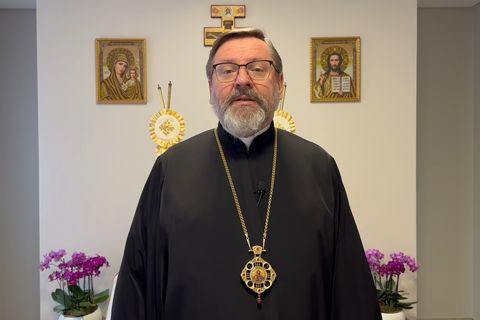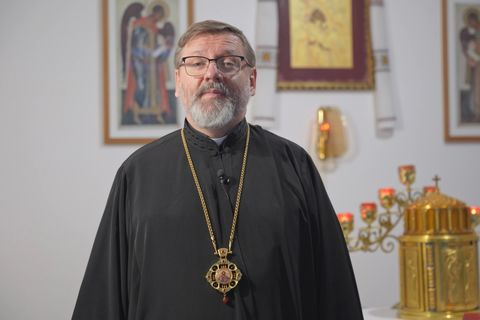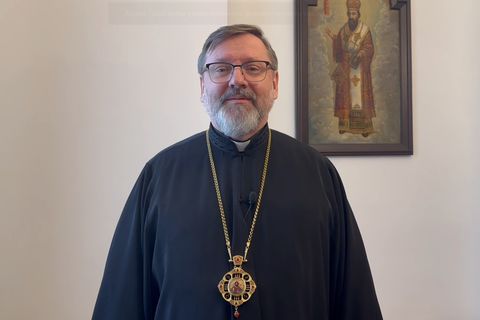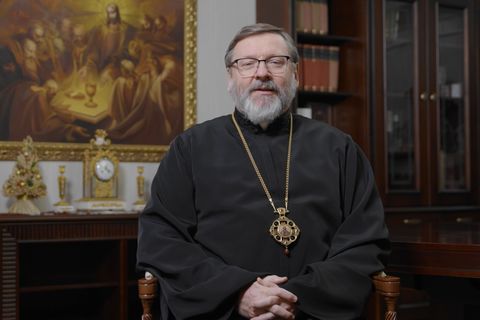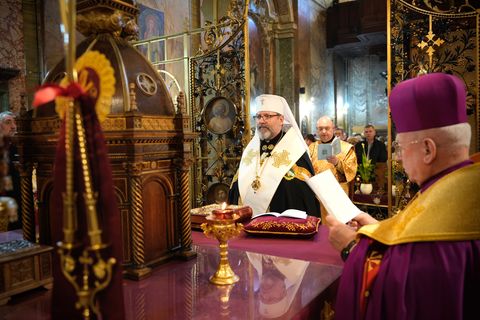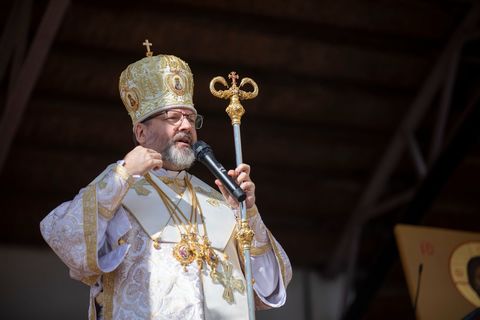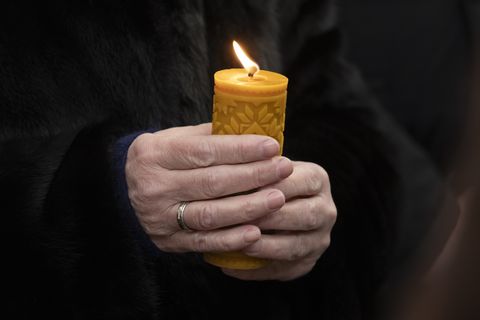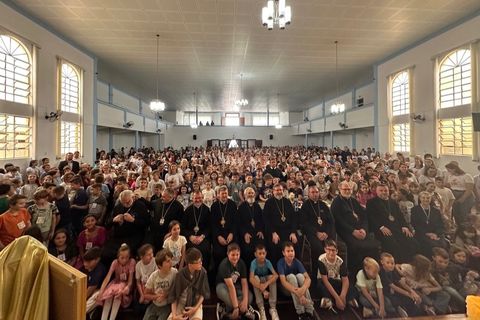Video-message of the Head of the UGCC on the 171st Week of Full-Scale War, May 25, 2025
Christ is risen!
Dear brothers and sisters in Christ!
It has now been 171 weeks since the beginning of the full-scale invasion—the sacrilegious war that Russia unleashed against the peaceful Ukrainian state and its people.
This week has once again been both turbulent and eventful. Our long-suffering city of Pokrovsk remains the most embattled area along the front line: nearly half of all Russian attacks on our forces have occurred there, in this small sector of the Donetsk front.
In addition, our peaceful cities and villages have been subjected to nightly airstrikes throughout the week. On the night of May 24, a massive combined assault was launched: fourteen ballistic missiles and 250 drones targeted our cities and towns. Kyiv, our capital, was the epicenter. Many buildings were destroyed, and people were injured.
Last night, Odesa, Zaporizhzhia, and other cities and villages also came under attack. This week, Russian drones even reached the far west of Ukraine—into the Carpathian region, including Ivano-Frankivsk, Bukovyna, and our Chernivtsi region.
Yet despite these truly grueling days, Ukrainians continue to live in hope of peace. They are building that peace—often at the cost of their own lives and blood. They pray for peace and go on pilgrimages to various holy sites across Ukraine. Pope Leo XIV continues to speak tirelessly about the need for peace, once again inviting all willing parties to sit down at the negotiating table in the Vatican, as he consistently has.
But from Russia, we have received a truly scornful rejection—not only of dialogue, even at the level of the Holy See, but of any meaningful steps toward halting the war, even for a moment. Still, despite what some may view as unsuccessful efforts, we continue to live, work, pray, and hope. And so, we cry out once more to the world: Ukraine stands. Ukraine fights. Ukraine prays.
This week, our Marian center in Zarvanytsia hosted the 100th anniversary session of the Synod of Bishops of our Church in Ukraine. All 27 bishops serving within our homeland were present. Among them was Bishop Teodor, Eparch of the Mukachevo Eparchy in Transcarpathia.
The central theme of this Synod was the Church’s social ministry during wartime. It was crucial for us to assess the current humanitarian situation in Ukraine and determine how we can work together to save lives.
We heard some deeply troubling statistics. According to the latest data from the United Nations Office for the Coordination of Humanitarian Affairs (OCHA), the war continues to intensify the humanitarian crisis in Ukraine—one that could become the largest facing humanity today, not only in Europe but globally. The figures speak for themselves.
The UN estimates that there are 4.6 million internally displaced persons, six million Ukrainians living under occupation, and 6.5 million more who have become refugees abroad. Over 16 million Ukrainians are classified as chronically affected by the war.
A particularly alarming trend is the sharp decline in humanitarian aid reaching Ukraine. Though four million people have lost their homes, less than half are receiving support to rebuild them. Of the 12.7 million Ukrainians in urgent need of assistance, only about a quarter can currently be helped. Five million are in immediate need of food, yet international organizations are only able to reach roughly two million of them with basic sustenance.
In the face of this dire reality, we must unite all efforts to prevent this crisis from descending into full-scale humanitarian catastrophe. The state, the Church, civil society, and international institutions must work in concert to bring aid to those suffering most.
I take this opportunity to thank all international organizations—especially Caritas Internationalis—and the many benefactors from Catholic communities and churches around the world for their continued support.
Sadly, few speak today about the humanitarian crisis in Ukraine. In many countries, media does not mention the millions of Ukrainians being on the brink of starvation. That is why our Church now raises its voice on behalf of the suffering people of Ukraine, appealing to the international community.
We can only respond to this crisis by standing together—by resisting the temptations of fatigue and despair. Let the power of God—His mercy, His love, which each of us knows personally—be our source of strength. “Caritas urget nos,” writes the Apostle Paul—“The love of Christ compels us.” It compels us to act, to open our hearts to those in dire need.
I would especially like to thank Pope Leo XIV, who from the earliest days of his pontificate has shown deep compassion and concern for the people of Ukraine. He has done everything within his power to halt the hand of the aggressor and bring an end to this devastating war.
Today we pray: God, bless Ukraine! Holy Mother of God, Queen of May, to whose protection we entrust our country during every May pilgrimage—hear our prayer! God, bless our long-suffering Ukrainian land with Your just and heavenly peace.
The blessing of the Lord be upon you, through His grace and love for mankind, always, now and forever, and for the ages of ages. Amen.
Christ is risen! He is truly risen!
